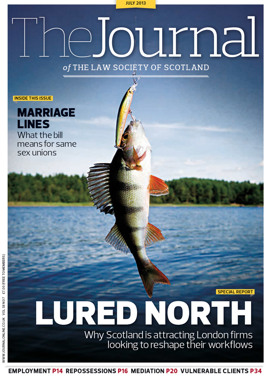Building better business cultures

Sponsored by Core Solutions
A fundamental shift is occurring in how people do business around the world. Driven as much by economic necessity as by a new enlightenment, it is said that organisations and industries are experiencing a paradigm shift in handling difficult situations, disputes and general problem-solving, moving from power-based competition to co-operative collaboration.
A good example lies in the construction industry. At the recent ABA dispute resolution conference in Chicago, Kurt Dettman, counsel to the Boston “Big Dig”, described the many strategies used in that massive infrastructure project and in other large contracts in order to prevent costly disputes arising.
New approaches to construction technology, design delivery and sustainability herald a counterpart need for innovative change in contracting principles and management of disputes, he said. More bangs need to be achieved for fewer bucks.
Dettman argued that this transition is marked by a recognition that reliance on rights and obligations in a commercial contract or project can lead to silo mentality, splintering of interests, multiple friction points and disputes. In contrast, he said, focusing on the integration of commercial interests and alignment of common goals among stakeholders – and on accountability – promotes a different culture.
Different tools are needed to manage and allocate risk (and to allocate rewards for successful collaboration). Thus, according to Dettman, emphasis needs to be placed on collaborative team building, early intervention and planned early dispute avoidance, upstream conflict management, real time issue identification and resolution, the employment of standing third party neutrals, advisers and mediators, and mitigation strategies for when things unexpectedly go wrong (as they will).
The bigger picture
Arguably, these ideas about collaborative problem-solving have a much wider application. One person who can see these changes occurring in Scotland is John Sturrock QC.
It is 12 years since Sturrock established Core Solutions Group as a provider of mediation and training services, at the same time leaving active practice at the Scottish bar. His vision was to expand the use of commercial mediation and high quality conflict management training in Scotland. He now senses a wider shift in culture.
“What is clear is that our role has expanded and changed to be significantly broader than it was even two or three years ago. This has taken Core into many interesting areas of work, in addition to our staples of classic mediation and high quality training. I think this is because the usefulness and value of an independent ‘third sider’, to quote William Ury, is better understood and more appreciated now than before.”
Sturrock cites a number of examples to illustrate his point:
A long-term engagement with a large and geographically dispersed service organisation, where there had been long-standing tensions in industrial relations, and negotiations over terms and conditions, were fraught with difficulty. A combination of in-house workshops on interest-based bargaining and negotiation, one-to-one coaching, facilitation of meetings, and mediation, has helped to build better working relationships and to identify common purpose in working towards agreement on many tough decisions.
Regular work in the health services, where the presenting dispute or internal conflict is symptomatic of underlying systematic dysfunctions and where there is need to build effective internal problem solving and dispute management capacity. Building strategies for long-term policy and planning by decision makers and stakeholders who have multiple and diverse interests, alongside coaching, mentoring, and mediation for staff members, helps to address the real issues.
Working within PLCs, developing competency in managers and business leaders to act as internal mediators, dispute managers and corporate strategists helping them to strike better deals, anticipate possible weaknesses and risks, and handle disputes and conflict before they escalate. With hundreds of millions of pounds at stake in supplier chains and other contracts with stakeholders, these sorts of interventions can make a huge difference.
In the world of sport, conflict and communication breakdown occur just as they do everywhere else but, with the intensity of performance, the consequences can be very serious. So, training and coaching in enhancing the ability of athletes and their support teams to deal with emotion, handle stressful incidents and keep focusing on the end result has proved to be very valuable.
Core has also conducted several in-house master classes on advanced negotiation and conflict management, with a focus on handling emotion, risk reduction, team-working, recognising cognitive traps and biases, preparation strategies, and dealing with deadlock. These challenge participants to think differently about what they do and how they do it.
Public debate
One of Sturrock’s most interesting engagements is with the various legislatures across the UK as they seek to improve the scrutiny functions of select and other committees, build on cross-party collaboration, and generally develop skills to hold Government ministers and officials to account. There is always a tension, says Sturrock, but many politicians really want to fine tune their forensic and questioning techniques and are reflective about the limitations imposed by party politics on the scrutiny of policy and legislation.
Sturrock comments: “Much of this work goes on under the radar. You won’t necessarily read much about this on our website. At the same time, we are pleased that our flagship training course continues to attract top quality participation not only from Scotland but from other parts of the UK and mainland Europe. The current course is filling already. And we have had the privilege of conducting the course in Belfast too and building on the strong relationships we have in Northern Ireland. Meanwhile, mediations continue apace throughout the UK and Ireland.”
In Sturrock’s view, the Scottish independence referendum offers mediators, facilitators and problem-solvers an opportunity to promote different ways to address such difficult issues. Core recently launched an initiative to encourage civility in public discourse and business life with its Protocol for Respectful Dialogue (see panel). Interest in this is strong, no doubt encouraged by former US President Bill Clinton’s remarks in Edinburgh recently, about the need for the independence debate to be carried out with respect. Indeed several law firms have already adapted the protocol for their own use.
Challenge for the profession
Where does all this leave lawyers? It is said that we are living in the “new normal”. As online working grows and access to information which was hitherto exclusive, the implications for traditional lawyering are significant. There is another legal revolution occurring. That much we all know already. As with the construction industry, the challenge now may be to find new ways for lawyers to work together, to work even more collaboratively for, and with, clients. To do so requires skills, techniques and attitudes that have not until recently been part of the legal education curriculum but without which lawyers could be left behind. It is comforting that an increasing number of Scottish practitioners recognise this, and are undertaking training and skills development to meet the challenges of this revolution.
Core – Scotland's leading business mediation service, for more information contact Stefanie Gibb on 0131 226 6564 or email stefanie.gibb@core-solutions.comDraft Protocol for Respectful Dialogue
“We, [the signatories to this Protocol], agree that it is in the interests of our [business, organisation, employees, and those with whom we contract/do business] that all communications are conducted civilly and with dignity. Therefore, we agree to:
- listen carefully to all points of view and seek fully to understand what concerns and motivates those with differing views from our own; acknowledge that there are many points of view and that these have validity alongside our own;
- show respect and courtesy to all individuals and organisations, whatever views they may hold and however they may express them;
- express our own views clearly and honestly, with transparency about our motives and our interests;
- use language carefully and avoid personal or other remarks which might cause unnecessary offence;
- ask questions if we do not understand what others are saying or proposing;
- respond to questions asked of us with clarity and openness;
- support what we say with clear and credible information whenever that is available.”
In this issue
- Credit hire: back to basics
- You know who I mean
- Behind all the fun
- Your Future in Law
- Reading for pleasure
- Opinion column: Cameron Fyfe
- Book reviews
- Profile
- President's column
- Mapping out the Crofting Register
- Back office bait
- Another bite at the cherry
- Security of your home
- Marriage redefined
- Building better business cultures
- Keeping a rein on child cases
- Minimum gain
- Beware LLP tax changes
- Framework remodelled
- Scottish Solicitors' Discipline Tribunal
- A Scottish ILG chair in New York
- Beneath the surface
- Being alert to the needs of the vulnerable
- Sins of our leaders
- How not to win business: a guide for professionals
- Litigation: a tight ship?
- Ask Ash
- Why sep rep?
- From the Brussels office
- Law reform roundup
- Diary of an innocent in-houser






